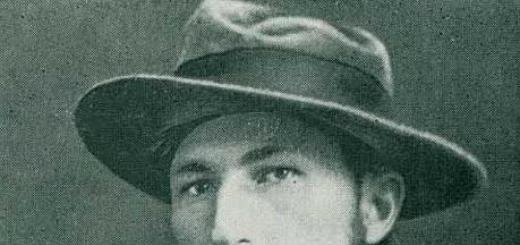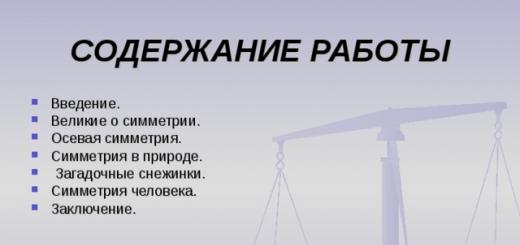Place all punctuation marks: indicate the number(s) in whose place(s) there should be a comma(s) in the sentence.
In his parents’ house, everything was as before (1) and (2) if Volodya seemed to have the home space as if it had narrowed (3), it was only because (4) that during the years of absence he had matured and grown a lot.
Explanation (see also Rule below).
Let's give the correct spelling.
In his parents’ house everything was the same, and if Volodya seemed to have narrowed his home space, it was only because during the years of absence he had matured and grown a lot.
Comma 1 separates the sentences “Everything was the same in the parents’ house” and “if it seemed to Volodya that the home space seemed to have narrowed.”
Commas 3 and 4 are placed before the subordinate clauses “this is only because” and “that during the years of absence he has matured and grown a lot.”
Commas should be in places 1, 3 and 4.
Answer: 134
Rule: Task 20. Punctuation marks in a sentence with different types communications
TASK 20 Unified State Exam. PUNCTUATION MARKS IN SENTENCES WITH DIFFERENT TYPES OF CONNECTION
In task 20, students should be able to place punctuation marks in complex sentence, consisting of 3-5 simple ones.
This the most difficult task tests the graduate’s ability to apply the following knowledge in practice:
1) at the level of a simple sentence:
Understanding that there is no sentence without a basis;
Knowledge of the features of the base one-part sentences(impersonal, etc.)
Understanding what's in simple sentence There can be homogeneous predicates and subjects, punctuation marks between which are placed according to the rules of homogeneous members.
2) at the level of a complex sentence:
The ability to determine the main and subordinate clauses in the composition of the IPP on the issue;
The ability to see conjunctions (conjunctive words) in subordinate clauses;
The ability to see index words in the main
The ability to see homogeneous subordinate clauses, in which punctuation marks are placed in the same way as homogeneous clauses.
3) at the level of a complex sentence:
The ability to see parts of the BSC and separate them with a comma. There is no common minor term in this task.
4) at the level of the entire proposal as a whole:
The ability to see those places in a sentence in which two conjunctions meet: there may be two subordinating conjunctions or a coordinating and subordinating conjunction.
Let's collect all the basic punctuation rules that are important when completing the task and number them for convenience.
| BP 6 If in a complex sentence there are coordinating and subordinating conjunctions nearby (And and ALTHOUGH, AND and HOW, AND and IF, BUT and WHEN, AND and THAT, etc.), then you need to find out if after the subordinate part there are correlative words THAT, SO or another coordinating conjunction (A, BUT, HOWEVER, etc.). A comma is placed only when these words are missing after the subordinate clause. For example: [Curtain rose], and, (as soon as the audience saw their favorite), [the theater shook with applause and enthusiastic screams] Compare: [Curtain rose], and (as soon as the public saw their favorite) So the theater trembled with applause and enthusiastic shouts]. and, (although her words were familiar to Saburov), [they suddenly made my heart ache]. [The woman talked and talked about her misfortunes], and (although her words were familiar to Saburov), But[they suddenly made my heart ache]. |
As you can see, rules 5 and 6 are very similar: we choose either to write TO (BUT...) or to put a comma.
Let's consider the proposals from the RESHUEGE database and the algorithm for working on the proposal.
[Claim](1) what? ( What Brazilian carnivals delight and fascinate)(2) And(3) (When(4) when? That convinced yourself (5) of what? ( how much the eyewitnesses were right).
1. Let's highlight the basics.
1- Affirm (one-part, predicate)
2- carnivals delight and fascinate
3- we saw
4- convinced yourself
5- eyewitnesses are right
2. We highlight conjunctions and correlative words. Please note that there are AND and WHEN nearby and that there is THAT.
3. Mark subordinate clauses: We put all sentences in which there are subordinating conjunctions in parentheses.
(What Brazilian carnivals delight and fascinate)
(When We saw its unique bright beauty for the first time)
(how much the eyewitnesses were right).
4. We establish which subordinate clauses belong to the main ones. To do this, we pose questions from the main ones to the supposed subordinate ones.
[They claim] what? ( What Brazilian carnivals delight and fascinate). 1 component found. Comma 1 is placed according to rule 4 [ = ], (which is = and =).
There are two subordinate clauses left and one without subordinating conjunction. We check whether it is possible to ask questions from him.
[That convinced yourself] when? ( When We saw its unique bright beauty for the first time)
[convinced yourself] of what? ( how much the eyewitnesses were right). The second component has been found. Commas 4 and 5 are placed according to rule 4.
(when - =), [then- = ], (how much - =) Two different subordinate clauses to one main clause, a clause of time very often stands BEFORE the main clause.
Components 1 and 2 are connected by the coordinating conjunction AND into one compound sentence. This is comma 2.
Scheme: |[ = ], (what- = and =)|, and |(when - =), [then- = ], (as far as - =)|
It remains to find out whether a comma is needed 3. Between AND and WHEN, according to rule 6, a comma is not needed, since TO is located after the subordinate clause.
Place all punctuation marks: indicate the number(s) in whose place(s) there should be a comma(s) in the sentence.
In his parents’ house, everything was as before (1) and (2) if Volodya seemed to have the home space as if it had narrowed (3), it was only because (4) that during the years of absence he had matured and grown a lot.
Explanation (see also Rule below).
Let's give the correct spelling.
In his parents’ house everything was the same, and if Volodya seemed to have narrowed his home space, it was only because during the years of absence he had matured and grown a lot.
Comma 1 separates the sentences “Everything was the same in the parents’ house” and “if it seemed to Volodya that the home space seemed to have narrowed.”
Commas 3 and 4 are placed before the subordinate clauses “this is only because” and “that during the years of absence he has matured and grown a lot.”
Commas should be in places 1, 3 and 4.
Answer: 134
Rule: Task 20. Punctuation marks in sentences with different types of connections
TASK 20 Unified State Exam. PUNCTUATION MARKS IN SENTENCES WITH DIFFERENT TYPES OF CONNECTION
In task 20, students must be able to place punctuation marks in a complex sentence consisting of 3-5 simple ones.
This challenging task tests the graduate’s ability to apply the following knowledge in practice:
1) at the level of a simple sentence:
Understanding that there is no sentence without a basis;
Knowledge of the features of the basis of one-part sentences (impersonal, etc.)
Understanding that in a simple sentence there can be homogeneous predicates and subjects, punctuation marks between which are placed according to the rules of homogeneous members.
2) at the level of a complex sentence:
The ability to determine the main and subordinate clauses in the composition of the IPP on the issue;
The ability to see conjunctions (conjunctive words) in subordinate clauses;
The ability to see index words in the main
The ability to see homogeneous subordinate clauses, in which punctuation marks are placed in the same way as homogeneous clauses.
3) at the level of a complex sentence:
The ability to see parts of the BSC and separate them with a comma. There is no common minor term in this task.
4) at the level of the entire proposal as a whole:
The ability to see those places in a sentence in which two conjunctions meet: there may be two subordinating conjunctions or a coordinating and subordinating conjunction.
Let's collect all the basic punctuation rules that are important when completing the task and number them for convenience.
| BP 6 If in a complex sentence there are coordinating and subordinating conjunctions nearby (And and ALTHOUGH, AND and HOW, AND and IF, BUT and WHEN, AND and THAT, etc.), then you need to find out if after the subordinate part there are correlative words THAT, SO or another coordinating conjunction (A, BUT, HOWEVER, etc.). A comma is placed only when these words are missing after the subordinate clause. For example: [Curtain rose], and, (as soon as the audience saw their favorite), [the theater shook with applause and enthusiastic screams] Compare: [Curtain rose], and (as soon as the public saw their favorite) So the theater trembled with applause and enthusiastic shouts]. and, (although her words were familiar to Saburov), [they suddenly made my heart ache]. [The woman talked and talked about her misfortunes], and (although her words were familiar to Saburov), But[they suddenly made my heart ache]. |
As you can see, rules 5 and 6 are very similar: we choose either to write TO (BUT...) or to put a comma.
Let's consider the proposals from the RESHUEGE database and the algorithm for working on the proposal.
[Claim](1) what? ( What Brazilian carnivals delight and fascinate)(2) And(3) (When(4) when? That convinced yourself (5) of what? ( how much the eyewitnesses were right).
1. Let's highlight the basics.
1- Affirm (one-part, predicate)
2- carnivals delight and fascinate
3- we saw
4- convinced yourself
5- eyewitnesses are right
2. We highlight conjunctions and correlative words. Please note that there are AND and WHEN nearby and that there is THAT.
3. We mark subordinate clauses: we put all sentences in which there are subordinating conjunctions in parentheses.
(What Brazilian carnivals delight and fascinate)
(When We saw its unique bright beauty for the first time)
(how much the eyewitnesses were right).
4. We establish which subordinate clauses belong to the main ones. To do this, we pose questions from the main ones to the supposed subordinate ones.
[They claim] what? ( What Brazilian carnivals delight and fascinate). 1 component found. Comma 1 is placed according to rule 4 [ = ], (which is = and =).
There are two subordinate clauses left and one without a subordinating conjunction. We check whether it is possible to ask questions from him.
[That convinced yourself] when? ( When We saw its unique bright beauty for the first time)
[convinced yourself] of what? ( how much the eyewitnesses were right). The second component has been found. Commas 4 and 5 are placed according to rule 4.
(when - =), [then- = ], (how much - =) Two different subordinate clauses to one main clause, a clause of time very often stands BEFORE the main clause.
Components 1 and 2 are connected by the coordinating conjunction AND into one complex sentence. This is comma 2.
Scheme: |[ = ], (what- = and =)|, and |(when - =), [then- = ], (as far as - =)|
It remains to find out whether a comma is needed 3. Between AND and WHEN, according to rule 6, a comma is not needed, since TO is located after the subordinate clause.
1) I wanted a lot but didn’t catch anything.
2) The ideal nobleman had to resemble the hero of chivalric novels and the character ancient history and on a Christian preacher.
3) The art teacher paid attention to the boy’s abilities and inclinations and convinced the parents to send the child to a painting school.
4) Summer residents lazily walk under an umbrella or sit in the shade of trees.
Indicate a sentence that requires one comma.
1) A long and dangerous journey by boat along the river develops a fearless and strong character in a person.
2) Andersen made the fairy tale interesting for both children and adults.
3) Reading a book sometimes makes you radically change your views on certain things and find the right path in life.
4) The Russian people are smart and understanding and zealous for everything good.
How to explain the placement of the colon in this sentence?
People are divided into two kinds: some think first, and then speak and act, and others speak and do first, and then think.
1) The generalizing word comes before the OCP.
2) The second part of a non-union complex sentence explains, reveals the content of what is said in the first part.
3) The second part of a non-union complex sentence indicates the condition of what is said in the first part.
4) The second part of a non-union complex sentence indicates the consequence of what is said in the first part.
Explain the placement of the colon in this sentence.
Everything turned yellow from the heat: the fields, the sky and the air.
1) The second part of a non-union complex sentence indicates the consequence of what is said in the first part.
2) The generalizing word comes before the OCP.
3) The second part of a non-union complex sentence indicates the reason for what is said in the first part.
4) The second part of a non-union complex sentence indicates the condition of what is said in the first part.
The wide lowland (1) at the borders (2) of which (3) a pine forest (4) began amazed tourists with its beauty.
1) 1,3,4
2) 1,4
3) 2,3,4
4) 1,2,3,4
Which answer option correctly indicates all the numbers that should be replaced by commas in the sentence?
The sky (1) which was black above the city (2) and yet separated from its dimly lit streets (3) completely merged with the ground (4) and darkness surrounded us.
1) 1,2,3,4
2) 1,2,3
3) 1,4
4) 1,3,4
Specify the types of offers.
1. A small and narrow river, as a result of a flood, spilled widely over an endless and huge field.
2. In spring, the oriole appears late, when the groves are already dressed and all the forest songbirds have long arrived.
3. The trees, which had already shed their leaves, rustled menacingly, and wisps of gray clouds rushed across the gloomy sky above them.
4. In his parents’ house, everything was the same, and if Volodya seemed to have the home space as if it had narrowed, it was only because during the years of absence he had matured and grown a lot.










